Madrid, 25th April 2017. At a time when improving air quality has become the main objective of the environmental public policies and with it restrictions on the use of private cars, drivers see their mobility compromised within the city. In this way, almost 80% are against circulation limitations by licence plate, although two out of three are in favour of banning circulation according to vehicle emissions; as has been gathered in the III Report “Spaniards facing the New Mobility”, developed by the Mobility Demoscopy Centre assimilated by the Autofácil magazine, AutoScout24 online vehicle platform, the Lainformacion.com portal and PONs Seguridad Vial consultant.
The report shows how putting into motion these anti-pollution measures, which also include parking restrictions or maximum speed reductions and which are viewed badly by more than 60%, contributes to many other drivers thinking hard before buying a car to avoid problems in the future.
In view of this situation, and given that cars with alternative technology are exempt from these limitations, it is no wonder that in the past year a strong interest has been stirred in drivers. That said, 73.3% admit to having considered purchasing a more eco-friendly car, as opposed with 58% in 2016.
Among this majority of drivers who are considering more ecological models, hybrid technology is what is attracting the most attention of almost half of potential buyers; although the electric car is what increases the most in purchase intention. Of these drivers, 24.1% admit to being interested in electric, eight percent more than the year before. In terms of car models and when it comes to choosing between these efficient cars, Toyota-Lexus is considered the best, followed by Tesla which has the greatest range of electric models in the market.
However, if these intentions to buy don’t become reality, then it is on the whole due to the uncertainty that still surrounds these electric models. In this way, more than a third do not trust these vehicles due to their insufficient range. This is something which comes above the price and the lack of charging stations as the main obstacle against the final implantation of the electric car.
Anti-pollution measures take their toll on diesel
This situation doesn’t mean in any way that the wallet doesn’t continue to call the shots when the time comes to buy a car. In fact, when faced with the second most important domestic investment after a house, adjusting the budget continues to be essential for almost seven out of every eight buyers. However, in an anti-pollution context, emissions have doubled their weight among the most decisive factors in the past year, already being fundamental for almost three out of every ten.
This growing fear of emissions has also taken its toll on diesel. In fact, the uncertainties generated around this fuel and the possible restrictions on traffic in the larger cities, push 40% of those drivers conditioned by the anti-pollution measures to leave this motorisation to one side as a buying option.
The urban mobility policies which tend to restrict the use of the private car push Spaniards to opt for other mobility solutions. Therefore, the service of car sharing / car pooling have in one year already been used by 22.5% of drivers in Madrid; the young adults of up to 30 years old being those who have taken to it the most. In this way, 30% of these admitted to using it, whilst there are 20% who still haven’t made use of it yet but who would like to do so. This percentage is more than double the national average, which according to the survey is set at 13.8%.
The move towards 100% online shopping
On the other hand, the report “Spaniards facing the New Mobility” not only analyses purchase intentions but also habits. In this way it shows how for six out of every ten drivers the internet now not only represents a way of searching for information but it is also another form of shopping; this reaffirms the figure of the digital consumer.
Therefore, in the smartphone era, popular instant messaging applications are becoming another tool for contact between buyers and sellers. In fact 11% of Spaniards admit to having already finalised a car deal directly through Whatsapp. Along these lines, buyers already envision a future where the whole buying process will be online, which is demonstrated by the fact that 40% are prepared to purchase a model that they themselves have ordered and personalised through virtual reality whilst not having seen or tested it physically. In this area women are much more conservative then men. In fact, 42% of men are prepared to buy a car in this way compared to 22% of women.
For Juan Hernández Luike, the director of Autofácil, “the preferences in purchase intentions shown in the study support the great velocity of change in current and future mobility in line with the market trends where electronic and hybrid vehicles appear to set themselves up as the main alternative to traditionally fuelled vehicles.”
According to the General Manager of PONS Seguridad Vial, Shara Martín, “the analysis results demonstrate that we are part of a paradigm change in urban mobility. The different modalities of the shared car and a greater awareness of the environment aren’t fleeting fashions but are here to stay”.
About the report
The III Report “Spaniards Facing the New Mobility” was developed by the Mobility Demoscopy Centre and formed by PONS Seguridad Vial, Autofácil, AutoScout24, Lainformacion.com and with collaboration with ALD Automotive. The report analyses the 5,207 participant’s opinions in the survey published between 19th of February – 19th March 2017. This study is the fruit of The Mobility Survey Centre’s investigation work which was carried out between four organisations in order that through the surveys they could periodically analyse the impact and evolution of the phenomenon of the new mobility in the Spanish people.
About the Mobility Demoscopy Centre
The Mobility Survey Centre is an entity formed by PONS Seguridad Vial, a leading company in strategic public and private consulting in the area of mobility and road safety; Autofácil, a leading monthly car publication for the past 14 years, circulation and sales according to OJD (a media and communications auditor); AutoScout24, the largest online car platform in Europe; and Lainformacion.com, an independent media centred on the news that effects the people. The Mobility Demoscopy Centre has the collaboration of ALD Automotive, a car rental company belonging to the Group Société Générale. Its aim is to analyse Spaniard’s habits in regards to the new mobility phenomenon; from the new tendencies in terms of consumer habits as with new preferences in means of transport. The Mobility Demoscopy Centre which was created in 2016, has committed to carrying out two annual waves on the most relevant issues of the sector by analysing the year to year evolution of the society in respect to the New Mobility phenomenon.
Press Contacts
Juan Luis Antolín
Communications Director PONS Seguridad Vial
@pons_Svial
Tel.: (+34) 91 700 79 24 / Móvil: (+34) 629 655 240
Download the complete report HERE




